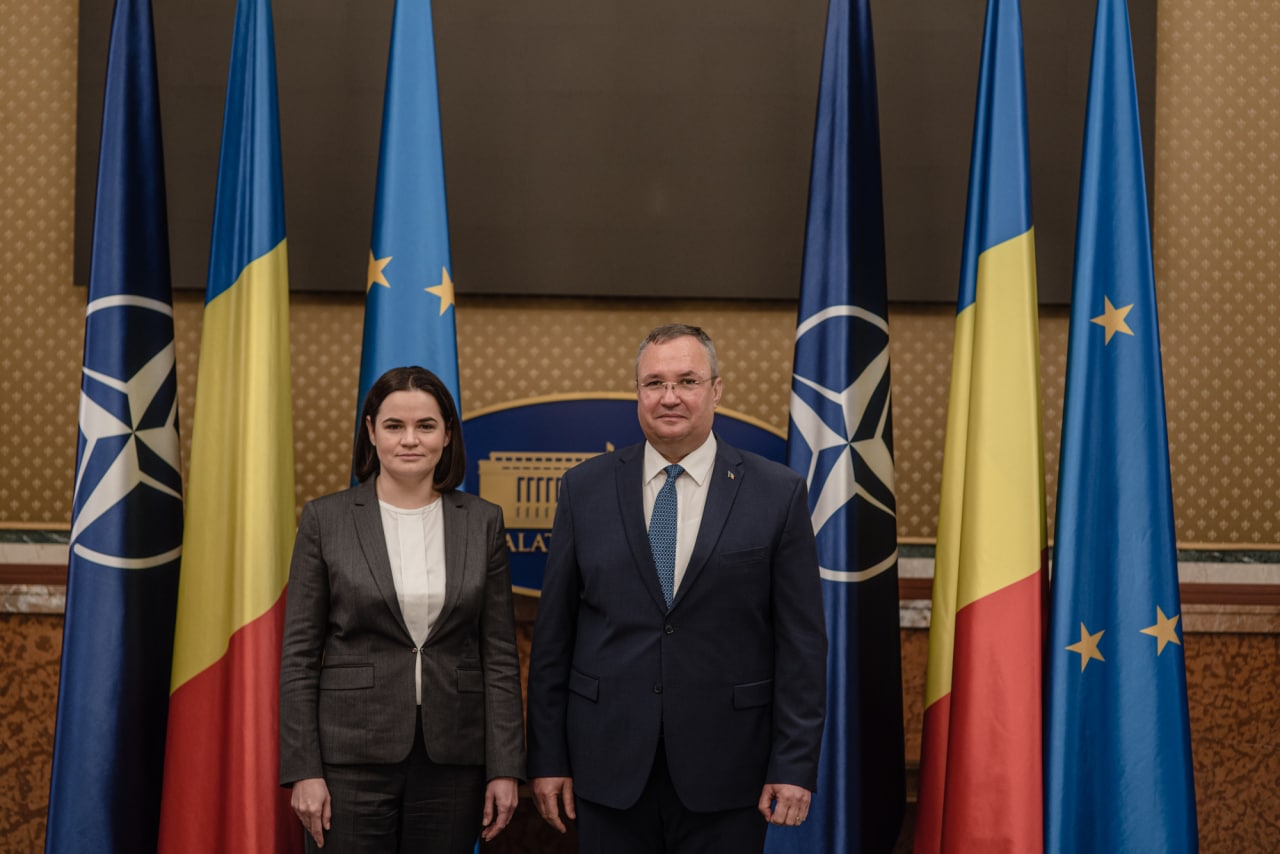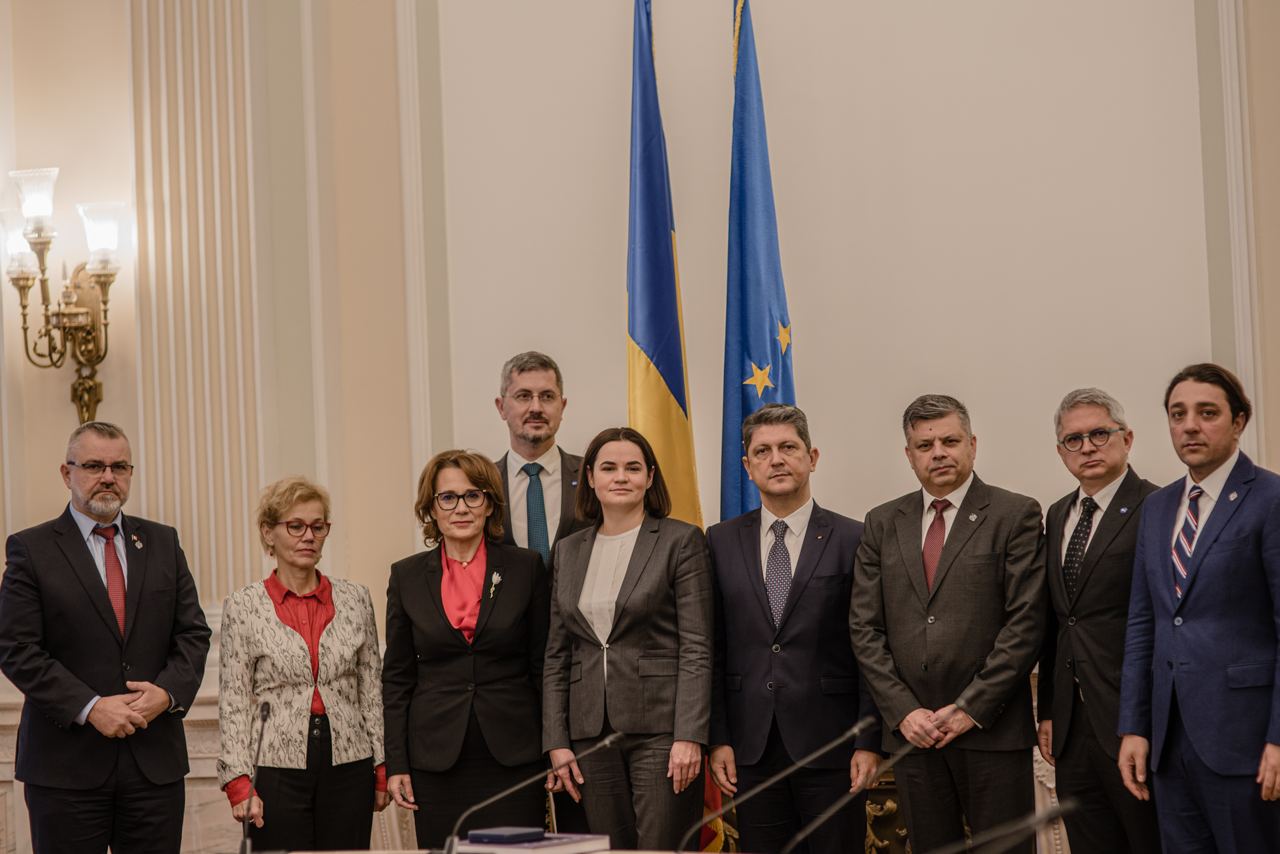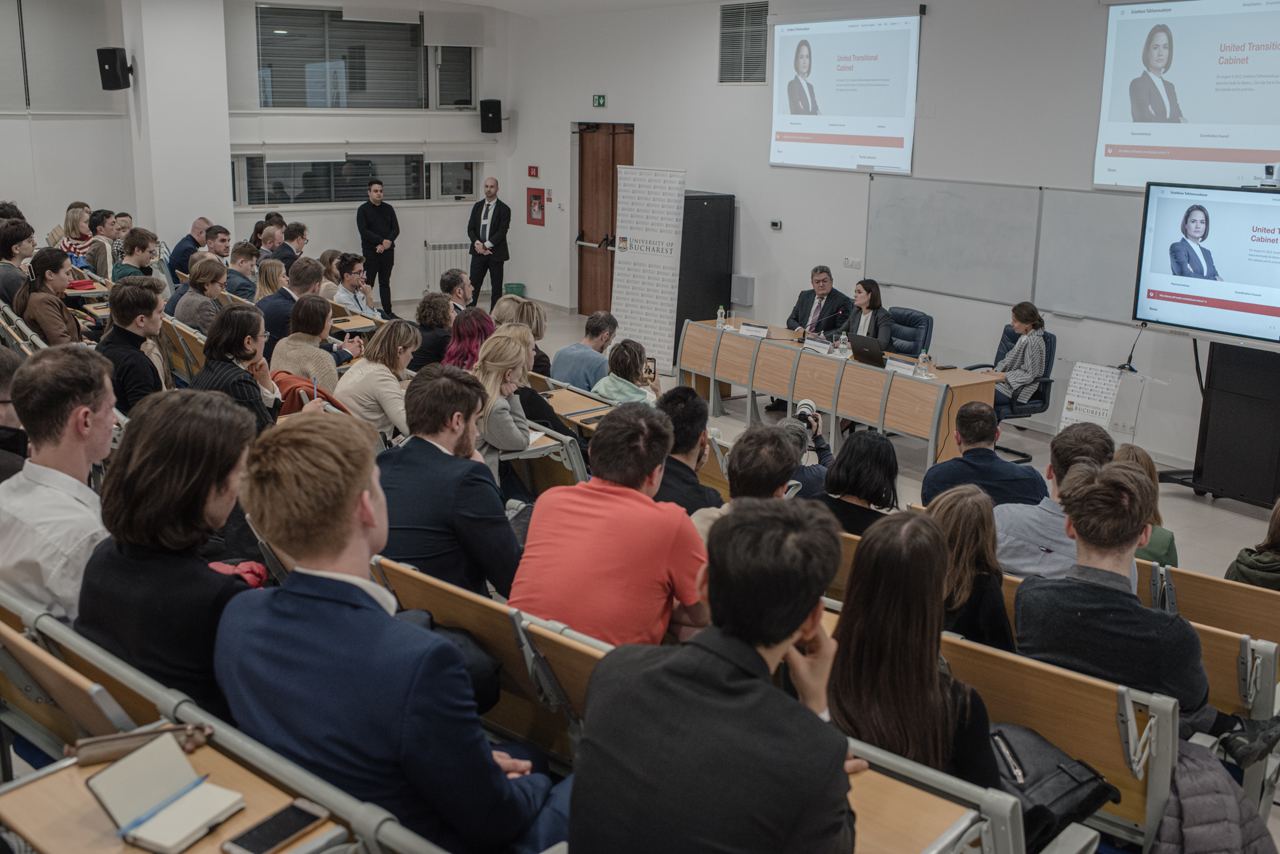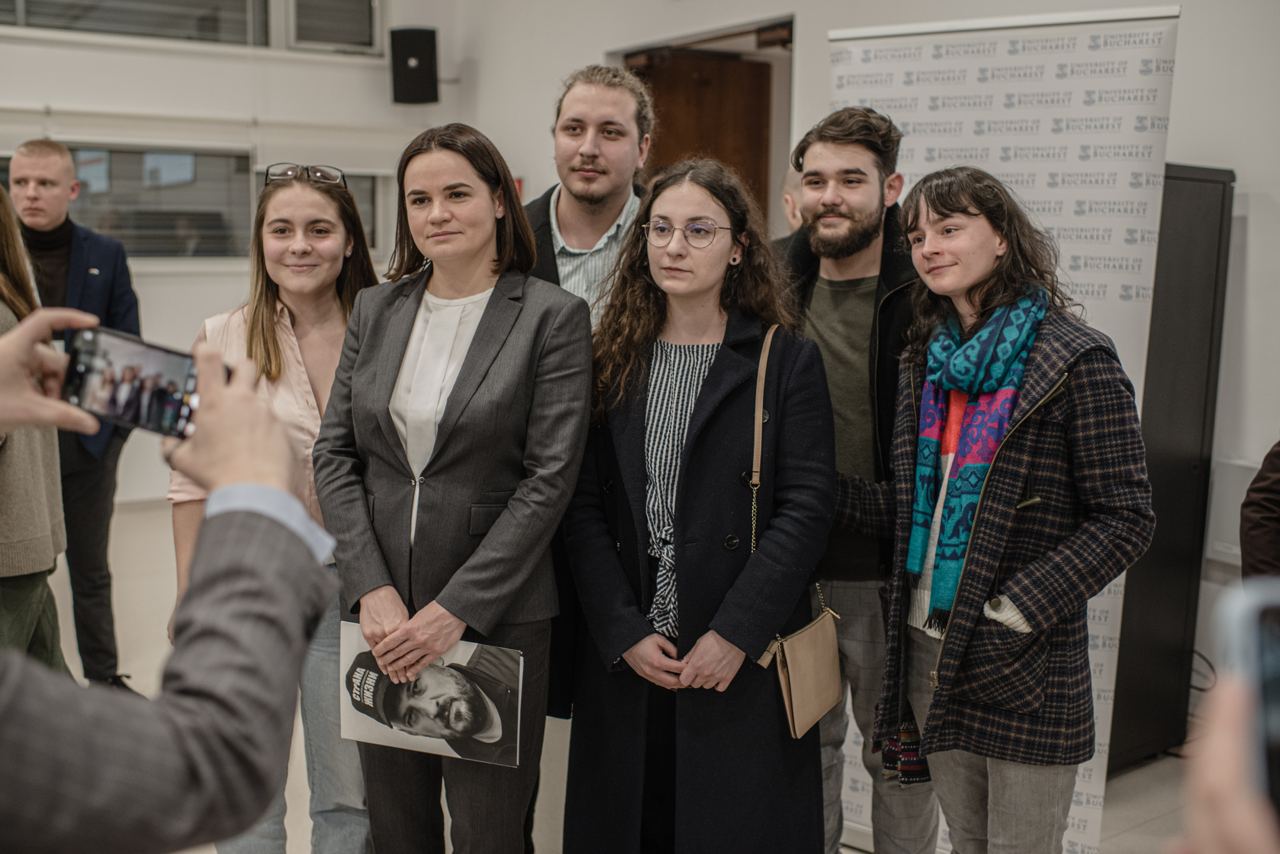The Prime Minister of Romania, Nicolae Ciucă, greeted the Belarusian leader in his office on November 28. This was Ms. Tsikhanouskaya’s first meeting with the head of the Romanian government. Sviatlana Tsikhanouskaya talked about the recent repressions in Belarus, conditions for political prisoners,, the situation of Maryia Kalesnikava, and the case of Ales Bialiatski. The Prime Minister expressed solidarity with Belarusians and assured Romania's support for the Belarusian democratic movement.
Nicolae Ciucă and Sviatlana Tsikhanouskaya discussed what the international community could do to prevent Belarusian troops from entering the war against Ukraine. They also talked about the EU Comprehensive Plan of Economic Support for Belarus, initiated by Romania, Poland, and Lithuania, which provides for 3 billion euros worth of assistance for transit and reforms. Ms. Tsikhanouskaya urged Romania to distinguish between the Lukashenka regime and the Belarusian people and provide maximum support to initiatives aimed at strengthening Belarus’ independence and national identity. The conference of foreign ministers of NATO member states starts today in Bucharest.

The National Leader of Belarus also held meetings in the Romanian parliament involving all party blocs. Sviatlana Tsikhanouskaya was received by Chairwoman of the Committee for Foreign Affairs Rozália Biró, as well as the Chairman of the Defense Committee and the Chairman of the Romanian delegation to the PACE. She urged the MPs to form a parliamentary group of Friends of Belarus, hold hearings on Belarus in the committees on international relations of both houses of parliament, and take patronage over political prisoners. Parliamentarians agreed right away to take patronage over several political prisoners and support the cooperation with democratic forces within PACE.

Sviatlana Tsikhanouskaya also spoke at the Munich Leaders Meeting, part of the Munich Security Conference. 75 political leaders, officers and experts from 25 countries took part in the Meeting, including the President of Romania, the Ministers of Foreign Affairs of Albania, Romania, Croatia, Slovenia, the Czech Republic, North Macedonia, the Chief of Staff of the Scholz Cabinet, and others. Ms. Tsikhanouskaya answered questions from the participants.
In her address, she made an appeal for recognizing the Lukashenka regime as a sponsor of terrorism and extending sanctions to employees of state propaganda media, KGB, and intelligence agencies. Ms. Tsikhanouskaya also called for issuing more visas for Belarusians in Belarus and supporting the repressed. She noted: “Today, we are at risk of losing everything: our freedom, our independence, and the very existence of the Belarusian state. Protecting and preserving it is our honor and duty. But we need the help of our friends in the democratic world”. Sviatlana Tsikhanouskaya urged the participants to abstain from recognizing the treaties and agreements signed by Lukashenka, as they have no legal force and undermine the Belarusian sovereignty: “Russia has undermined the sovereignty of Belarus by signing new treaties on military and economic integration. They are signed by a dictator who has no right to sign anything on behalf of the people, after losing legitimacy in 2020”.
Sviatlana Tsikhanouskaya called on international leaders to support the European Parliament resolution and guidelines, including isolating the regime, supporting the Belarusian people in their struggle, establishing contacts with the United Transitional Cabinet, and initiating investigative actions against the regime for crimes against opponents and support for the war in Ukraine. “Tyranny is never a local problem. And Lukashenka's actions show this”, Sviatlana Tsikhanouskaya said. She highlighted that the new strategy of the democratic world should include measures to protect Belarusian sovereignty so that Belarus is not given up to Putin for ransom.
Ms. Tsikhanouskaya also met with Belarusians of Romania and spoke at the University of Bucharest. From the new semester, the University will launch a course on Belarusian studies.









